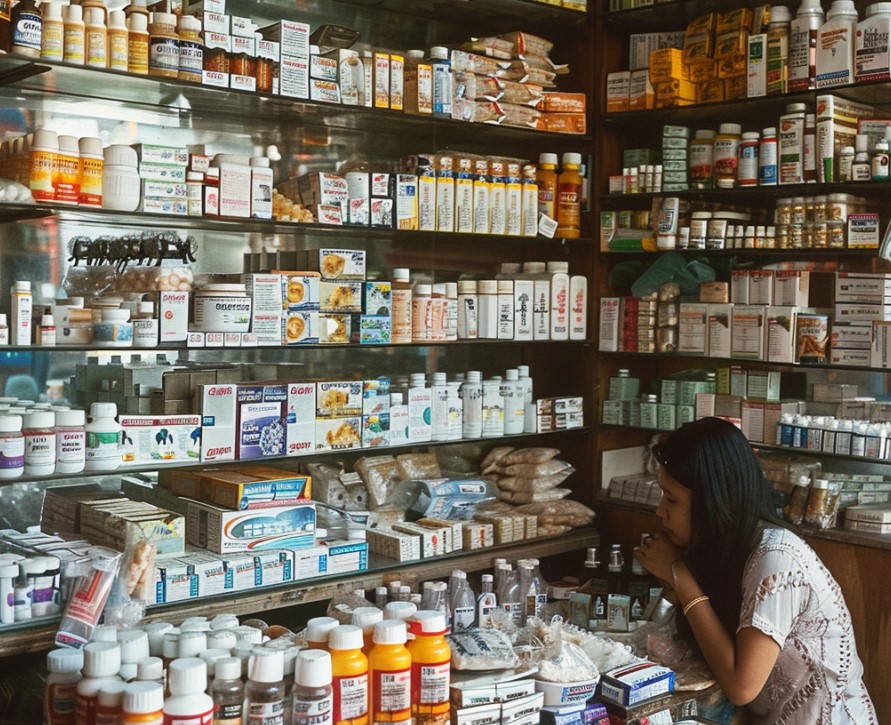Medications not allowed in Philippines
The Philippines has stringent regulations governing the importation of medications, with specific restrictions on certain substances and products. Understanding these regulations is crucial for travelers and individuals seeking to bring medications into the country. This comprehensive guide provides an overview of the prohibited medicines in the Philippines, the regulatory framework, and essential information for compliance.
List of Medications Not Allowed in Philippines
Medications not allowed in the Philippines without specific permissions or restrictions include:
- Manufactured salt, derivative, or preparation thereof, unless imported by the government or duly authorized entities like the Dangerous Drugs Board (DDB).
- Opium pipes or parts thereof, regardless of material.
- Certain dangerous drugs listed by the Dangerous Drugs Board (DDB) and Philippines Drug Enforcement Agency (PDEA).
- Penicillin/derivatives, unless cleared by the Bureau of Food and Drugs (BFAD).
- Refused entry for over-the-counter drugs in excess of 50 grams per person.
- Prescription drugs in excess of what’s stated in the physician’s prescription.
- Fresh or frozen unprocessed foods, including fresh fruits, frozen meats, and fresh fish, without prior clearance from the Department of Agriculture.
- Household urban pesticides without prior FDA release.
Please note that this list is not exhaustive, and it’s always best to consult official sources or seek advice from the relevant authorities before traveling with medication to ensure compliance with current laws and regulations.
Introduction to Medicine Restrictions in the Philippines
The Philippines strictly regulates the importation of medications to safeguard public health and prevent the proliferation of illicit drugs. The country’s Food and Drug Administration (FDA) oversees the approval, importation, and distribution of pharmaceutical products, ensuring that only safe and authorized medicines are made available to the public.
Prohibited Substances and Medications
Certain substances and medications are strictly prohibited from being imported into the Philippines. These include, but are not limited to, the following:
- Narcotics and Psychotropic Substances: Medications containing narcotics and psychotropic substances, such as opioid painkillers and certain sedatives, are subject to strict regulation. Importing these substances without proper authorization is prohibited.
- Unregistered Medicines: Pharmaceutical products that have not been registered with the Philippine FDA are not allowed for importation. This regulation ensures that all medicines meet the country’s safety and efficacy standards.
- Counterfeit or Substandard Medications: Importing counterfeit or substandard medicines is strictly prohibited in the Philippines. The government is committed to preventing the entry of falsified or low-quality drugs into the country.
- Unapproved Herbal Products: Herbal or traditional medicines that have not been approved by the Philippine FDA are prohibited from importation. This regulation aims to ensure the safety and quality of herbal remedies available in the country.
Prescription Requirements and Exceptions
Some medications may only be imported into the Philippines with a valid prescription from a licensed healthcare professional. Travelers should ensure that they have the necessary documentation for any prescription medications they intend to bring into the country. Additionally, there are specific requirements for importing controlled substances, and travelers are advised to seek guidance from the Philippine FDA or their nearest Philippine embassy or consulate.
Penalties for Noncompliance
Noncompliance with the Philippines’ medicine import regulations can result in severe penalties, including fines, confiscation of goods, and legal action. It is essential for travelers to understand and adhere to these regulations to avoid potential repercussions.
How to Check Permitted Medications
To determine whether a specific medication is permitted for importation into the Philippines, travelers can consult the Philippine FDA’s official website or contact the agency directly. The FDA provides comprehensive information on approved medicines, as well as guidance on the importation process.
Tips for Safe Travels with Medications
To ensure compliance with the Philippines’ medicine import regulations and facilitate a smooth entry into the country, travelers are advised to:
- Carry medications in their original packaging, clearly labeled with the patient’s name.
- Keep a copy of any relevant prescriptions or medical documents.
- Research and confirm the permissibility of each medication before traveling.
- Seek guidance from healthcare professionals or regulatory authorities as needed.
By understanding and adhering to the Philippines’ medicine import regulations, travelers can help maintain public health standards while ensuring their own well-being during their time in the country.
Where can I get OTC medication in Philippines?
Over-the-counter (OTC) medications are widely available throughout the Philippines in various locations, including:
- Local pharmacies
- Convenience stores
- Supermarkets
- Sari-sari stores (small neighborhood shops)
Some popular OTC medications and their respective brand names are listed below:
- Paracetamol: Biogesic, Tempra, Calpol, Tylenol
- Ibuprofen: Advil, Midol, Medicol Advance, Alaxan
- Loperamide: Imodium, Diatabs, Lomotil, Lormide
- Mebendazole: Combantrin, Antiox
- Cetirizine: Ceticit, RiteMed, Allecure, Virlix
- Loratadine: Allerta, Claritin, TGP, RiteMed
- Salbutamol: RiteMed, Ventolin
- Antacids: Maalox, Tums, Gaviscon, Kremil-S
- Multivitamins: Enervon, Centrum, Stresstabs, Neurogen E
For a comprehensive list of OTC medications and their uses, refer to the section “List: Over-the-counter Medicine and Where to Get Them in the Philippines” from the search result[9]. Always remember to follow the instructions on the packaging and consult a healthcare professional if unsure about dosage or interactions with other medications.
In conclusion, it is essential for individuals traveling to or residing in the Philippines to familiarize themselves with the country’s medicine import regulations. By respecting these regulations and seeking guidance when needed, travelers can contribute to safeguarding public health while ensuring access to necessary medications within legal parameters.


